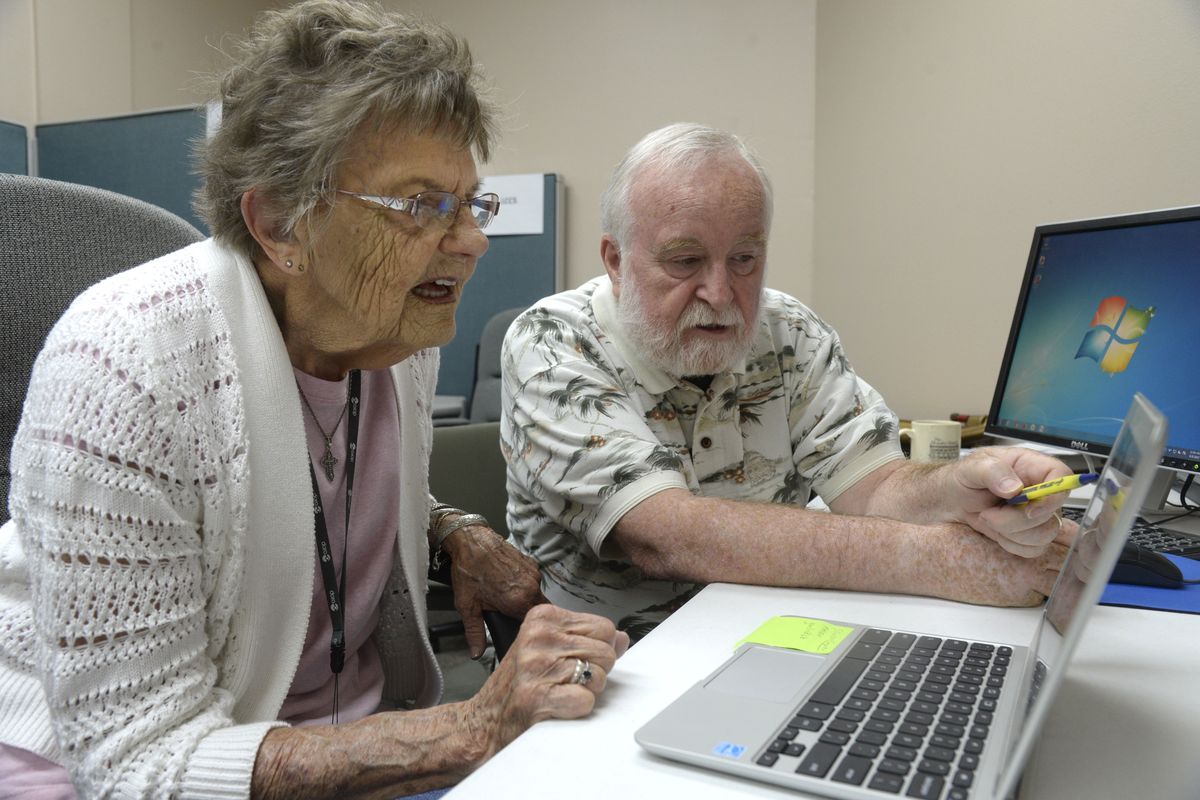All hands on tech: Savvy seniors receive schooling on Internet safety

Baby boomers are, in general, technologically savvy, Skyping grandkids, texting friends, shopping online and banking from laptops and smartphones.
Yet these seniors, like the majority of Washington adults, often forsake security for the ease of logging on anytime or anyplace, especially through free Wi-Fi networks, said Doug Shadel, the state director of AARP Washington, during a cyber-safety presentation to about 200 seniors in the Spokane Valley last week.
“There’s real tension between convenience and security,” Shadel said during the annual gathering where AARP Washington released a new report showing nearly half of Washington Internet users failed a recent quiz about online and Internet safety.
Some of the top offenses are banking online or buying items with a credit card while using public Wi-Fi networks.
Other easily solved security no-no’s are failing to use passwords on smartphones and tablets, not changing online bank passwords every three months and not monitoring bank, credit card and other finance reports frequently – if not daily – instead of waiting for monthly statements to arrive in the mail.
The security breaches are like winning the Nigerian lottery for hackers who use sneaky and sometimes blatantly obvious yet somehow convincing tactics to steal people’s personal information and separate them from their money.
One common attack is known as “man-in-the-middle,” which happens when people use free, unsecured Wi-Fi connections. Using easy-to-get software, hackers put themselves between two parties in a communication and impersonate both sides of the exchange to get data such as passwords and account numbers.
Another attack is called “evil twin,” in which hackers connect with unsuspecting people through a fake access point, such as a free Wi-Fi connection.
Then there are the more familiar Microsoft scams, where someone impersonating tech support from a major computer company like Microsoft calls or emails offering to help fix your computer problems for a fee. A Microsoft representative at the meeting last week reiterated that the company, any tech company, will not call consumers offering tech support.
According to the “Shady Signals” report, 73 percent of the 800 Washington adults polled access the Internet every day, with 25 percent of online users saying they use free Wi-Fi once a week or more. Yet 4 in 10 respondents didn’t know basic safety tips to help prevent hackers from capturing personal information and using it to steal identities and money.
Some of the top tips are:
• Don’t use the same password on more than one site even it contains a complex mix of letters, numbers and symbols.
• Disable your wireless connection if you’re in a location with a public Wi-Fi network and you aren’t using the Internet.
• Don’t access websites with sensitive information such as banking or credit cards while using a public Wi-Fi network, even if the website is secured by https.
• When using public Wi-Fi, check with staff to confirm the connection is legitimate before signing on.
• Don’t leave personal information in your vehicle, including phones, computers or tablets.
• Shred important financial documents.
• Buy a locking mailbox for postal deliveries.
In addition, more than 75 percent of the people surveyed admitted they had no idea what type of encryption software they have for their at-home Wi-Fi network. The most up-to-date security for a home Wi-Fi network is WPA2 wireless encryption, not Wired Equivalent Privacy, according to online security experts working with the AARP.
Shadel said he drove around the Spokane Valley for several minutes the night before the presentation and found more than 50 home-based Wi-Fi networks that he could have hacked into using free software available online.
The experts reiterated that it’s important to know how to use technological devices and how to control the settings.
Local community colleges and libraries often offer computer classes or instruction on how to use smartphones and tablets. The Lake City Senior Center in Coeur d’Alene has a computer lab and offers computer lessons for $2. The center is looking for a volunteer to teach seniors about newer technology.
State Attorney General Bob Ferguson told the audience to always report consumer violations or potential scams. The cyber-safety events are sponsored by AARP, the state Attorney General’s Office, Microsoft and the Federal Trade Commission.
The state’s Consumer Resource Center receives 25,000 complaints each year. More than $4 million in mediated results were achieved in fiscal year 2013.
“Over half of our consumer violations are people over age 50,” Ferguson said, asking the audience to share the cyber-safety information with friends and family.